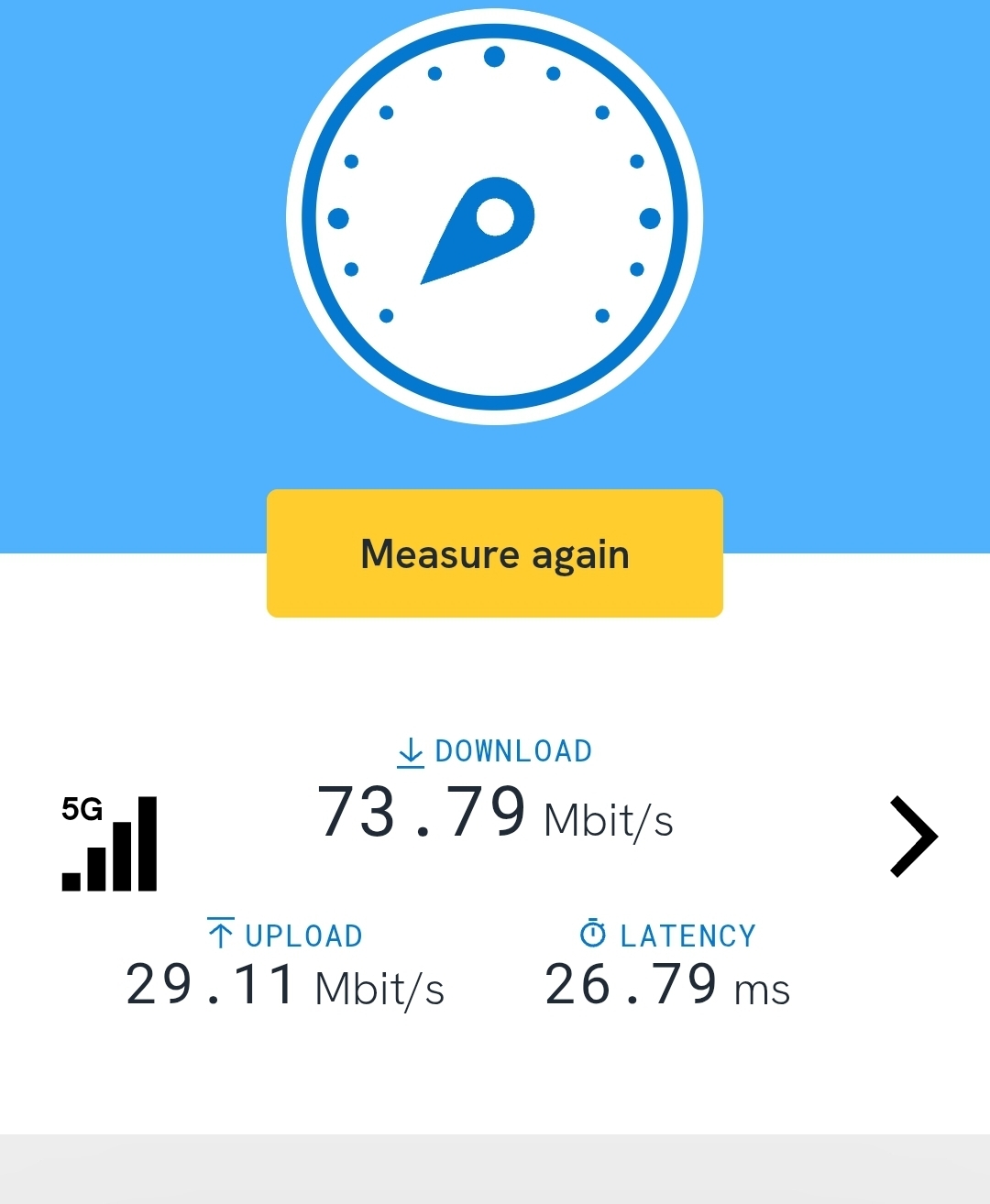China is quietly pushing ahead with massive 50,000Mbps broadband rollout to leapfrog rest of the world on internet speeds
-
We already have private 100gbps in Australia and our public network just trialled it last year so rollout is expected this year.
Why is anyone celebrating 50gbps? I can’t imagine Australia is anywhere near leading here.
This is for PON technology. 1 fibre can be split 32-ways to feed, you guessed it, 32 customers. 50g over a fibre that is split 32-ways with a minimum of 15db loss is impressive.
I guarantee those 100gbps circuits are a single fibre all the way from the provider to the customer. And they are expensive, very expensive.
-
LTT are also a bunch of loonie toon characters cosplaying as techies who lost all their data multiple times to malpractice. I'd hardly uplift them as a banner case.
Possibly not, but if their whole company can run off 10 gigabit, who needs 50 in their house?
-
Possibly not, but if their whole company can run off 10 gigabit, who needs 50 in their house?
I didn't read that this was for residential connections?
-
50gbps **shared line using passive optical splitters. Bit misleading there Chona, nobody is getting an actual 50gbps connection to their house.
Its not that out of this world, though it is currently completely unneccessary. 10gb+ has been somewhat common residentially for years.
-
50gbps **shared line using passive optical splitters. Bit misleading there Chona, nobody is getting an actual 50gbps connection to their house.
Most residential fiber currently is GPON with a 2 Gbps shared line using passive optical splitters, split up to 32 ways. Raising that shared line to 50 Gbps is a great upgrade.
-
I probably shouldn't have posted it that way. I've been to Bejing, but I picture a lot of rural rice farmers just NOT part of the Internet and of course with censorship rampant, I just figure, why so fast? Sounds like flexing. But maybe I'm wrong.
They're probably not building out 50 Gbps to the rice farmers
-
I'm sure the hardware for 50Gbps optics wouldn't be cheap for the consumer

Enterprise adopted 100GbE networking around 2019. You can now buy used network cards for around $100 each.
-
Enterprise adopted 100GbE networking around 2019. You can now buy used network cards for around $100 each.
Probably not where I am, that seems really low. I mean it depends if you use name brand or not. Often I don't use the name brand ones

-
So they received money for something they didn't do. They should pay those back.
But someone at AT&T would have to sell their yatch
-
cross-posted from: https://lemm.ee/post/54702508
Meanwhile, Telia in Estonia: "The Estonian customer doesn't prioritize connection speed or price, that's why we don't need to offer competitive speed/price ratios compared to what we have in other European countries"
-
But someone at AT&T would have to sell their yatch
That yacht is fine because someone else at AT&T rotated into a position at the FCC
-
So they received money for something they didn't do. They should pay those back.
American companies being welfare queens, imagine that.
-
50gbps **shared line using passive optical splitters. Bit misleading there Chona, nobody is getting an actual 50gbps connection to their house.
"Chona"
Hahah.
-
Written in Switzerland from my 25GBps symmetric connection (for like 60$/month) that I have for a couple of years

 ️
️Also for personal use the difference between 1Gbps and 25 (or, I guess, 100GBps) is essentially zero… your everyday connection is via WiFi (good luck to get more than 1GBps there) or on a home server/NAS/workstation where likely you run batch jobs where the difference between 1 minute or 5 minutes is not a huge deal (and yes I am not saying 1 vs 25 because at that speed generally the bottleneck is the place where you are getting data from)
I have symmetrical 10 Gbps at home ($30/mo) and I'll agree. When it's nice when you have big updates, for most households 1 Gbps is going to be just fine. As you say, the vast majority of users are bottlenecked by Wi-Fi.
The bigger crime are all the asymmetrical connections that people on technologies like Cable TV networks have, where you get 1-2 Gbps down but only something tiny like 50 Mbps up. This results in crappy video calls, makes off-site/remote backups unfeasible, etc etc.
-
The “innovation” in the article is passive tech for fiber to the room (FTTR), specifically made to be low cost and easier to implement. It’s also how your computer might get that 50Gbit - it’ll have to be wired in with a fiber connection. It’s not happening over WiFi (or even Ethernet)
(or even Ethernet)
Technically, those 100+ Gbps fiber LAN/WAN connections used in data centers are also Ethernet, just not twisted pair.
That said recently I was in a retail store and saw "Cat8" cables for sale that advertised support for 40 Gbps copper ethernet! I wonder if any hardware to support that will ever be released. It is a real standard: https://en.wikipedia.org/wiki/100_Gigabit_Ethernet#40GBASE-T
-
I’m not sure if you’re trolling or just IT illiterate, but do you hit 100% of your plans speed 24/7?
Because most people do not, that’s not how it works.
I sure do. Usually even 10% more. Everyone I know tend to get the same results.. Only place i dont hit advertised speed is on mobile, but thats usually plenty enough even in the woods.
In my country, if you dont hit your plan besides when on mobile, something is wrong.

-
cross-posted from: https://lemm.ee/post/54702508
But it's not like the Chinese government to provide that kind of service out of kindness.
-
I have symmetrical 10 Gbps at home ($30/mo) and I'll agree. When it's nice when you have big updates, for most households 1 Gbps is going to be just fine. As you say, the vast majority of users are bottlenecked by Wi-Fi.
The bigger crime are all the asymmetrical connections that people on technologies like Cable TV networks have, where you get 1-2 Gbps down but only something tiny like 50 Mbps up. This results in crappy video calls, makes off-site/remote backups unfeasible, etc etc.
Do you actually have 10G switches and network cards, or is everything behind your router on 1G?
-
Written in Switzerland from my 25GBps symmetric connection (for like 60$/month) that I have for a couple of years

 ️
️Also for personal use the difference between 1Gbps and 25 (or, I guess, 100GBps) is essentially zero… your everyday connection is via WiFi (good luck to get more than 1GBps there) or on a home server/NAS/workstation where likely you run batch jobs where the difference between 1 minute or 5 minutes is not a huge deal (and yes I am not saying 1 vs 25 because at that speed generally the bottleneck is the place where you are getting data from)
I have a 40Mbps down, 5Mbps up connection for $30. Consider yourself as real lucky.
-
I have symmetrical 10 Gbps at home ($30/mo) and I'll agree. When it's nice when you have big updates, for most households 1 Gbps is going to be just fine. As you say, the vast majority of users are bottlenecked by Wi-Fi.
The bigger crime are all the asymmetrical connections that people on technologies like Cable TV networks have, where you get 1-2 Gbps down but only something tiny like 50 Mbps up. This results in crappy video calls, makes off-site/remote backups unfeasible, etc etc.
you get 1-2 Gbps down but only something tiny like 50 Mbps up
That's exactly what you get in Australia, even if you have FTTP, 95% of ISPs only offer up to 1000/50Mbps, and that's if you live in the big cities. Mine costs ~US$70/mo btw. And they have a 'typical evening speed' that drops to 860/42Mbps (I've never heard of such a concept outside Australia. Yeah, totally not a scam).
A handful ISPs offer 1000/400Mbps and you'll be looking at ~US$125/mo. Anything faster you'll be handed with astronomical commercial bills.



